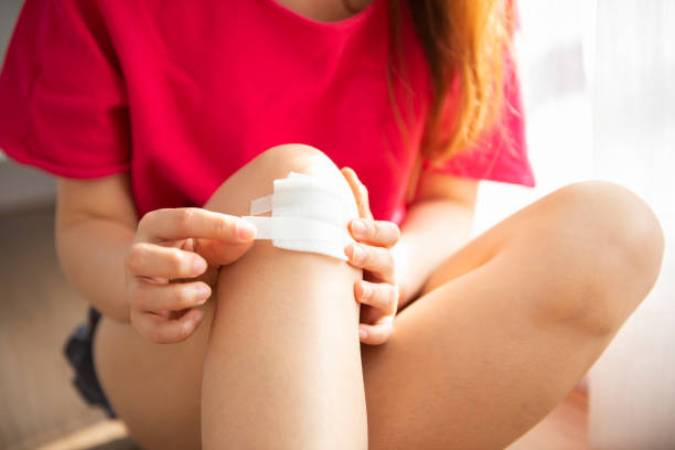How to Look After Your Skin After an Injury: Chances are you are already aware of your skin’s essential functions and why it’s necessary to have healthy skin. From regulating body temperature to protecting you from UV light, producing vitamin D, and increasing your confidence, your skin performs several important functions, and this is why it’s always important to look after your skin whenever you have an injury.
The major causes of skin injury are falls, accidents involving sharp objects, and auto accidents. In case of auto accidents, you should seek medical help as soon as possible, especially if there’s an open wound and a lot of bleeding. Even if there’s no visible injury, you could be suffering from internal injuries. So, you should still check in with a doctor.
“After a car accident, it is wise to seek medical attention, no matter the extent of your injuries. Common injuries resulting from car fortunes include head injuries, fractured bones, paralysis, internal organ damage, concussion, and so on.
You have the right to seek financial compensation for any injuries and damages sustained after seeking medical attention, especially if you were injured due to the negligence of another party,” says the Barnes Firm, a personal injury lawyer in NYC.
Below, you’ll find various ways you can take care of your skin after an injury:
Table of Contents
Home Care For Minor Wounds
Minor wounds like superficial abrasions, scrapes, bruises, and minor cuts can be treated at home. The first thing to do whenever you suffer a minor skin injury is to wash the wound to remove any dirt and debris. You’ll also need to disinfect the wound.
If the wound is bleeding, you can control the bleeding by applying pressure to it and elevating it. Depending on the severity of the wound, you may or may not need to apply a sterile bandage or dressing.
If the wound is very superficial, there is no need for dressing. All you have to do is keep the wound clean and dry. If there is any pain, you can use over-the-counter (OTC) analgesics like Tylenol. An ice pack can help relieve bulge and bruising.
Medical Treatment
If you have a wound that’s deep or won’t stop bleeding after direct pressure and elevation, you shouldn’t delay a visit to the emergency room. You should also go to the doctor after a car accident for the reasons explained above. Your doctor will help clean and numb the area. Depending on the severity of the wound, sutures or stitches may be needed to close the wound.
You may be given pain medication, antibiotics, and a tetanus shot. Comply with your medication and keep any future appointments, as sutures may need to be removed or the dressing changed.
How to Improve Wound Healing
Eat a Balanced Diet
While a balanced diet is important for healthy skin, it becomes more important after suffering an injury to speed up the healing process. Pay special attention to proteins, vitamins, healthy fats, and carbohydrates. Chicken, yogurt, cheese, milk, and dried beans are excellent protein sources.
Oysters, spinach, nuts, citrus, dark leafy greens, fish, almonds, and shellfish are good sources of vitamins and minerals. Carbohydrates provide the energy your body needs to keep functioning.
Hydrate with water
Water and hydration play an important part in wound healing. If you aren’t taking enough water, your skin becomes dry and dehydrated. These conditions aren’t good for wound healing and worsen scarring. So, if you want healthy skin or speed up wound healing, take enough water.
Avoid tobacco products
Smoking has been shown to delay wound healing as it affects the immune system and your body’s ability to absorb essential nutrients. Even smoking one cigarette a day can have a significant effect on wound healing.
Depending on the severity of your injuries, you may need to stop smoking during your recovery. If you already have it in mind to quit smoking, there’s no better time to start a smoking cessation program than when you are recovering from an injury.
Get Enough Rest
Adequate rest is needed for proper wound healing. Depending on the severity of the wound, you may need to take a break from exercise and housework. This can sometimes be difficult considering the busy schedule many people have. But it’s absolutely necessary if you are involved in a serious accident.
A good night’s rest also promotes wound healing. The more uninterrupted sleep you get, the faster your
can repair damaged tissues. Inadequate sleep lowers a person’s immunity and delays wound healing.
Perform Regular Skin Check
Always check the condition of the wound as it heals, and inform your healthcare provider if you notice any discoloration, swelling, or discharge. It may be signs of an infection, and you’ll need to have it looked at by a healthcare professional.

